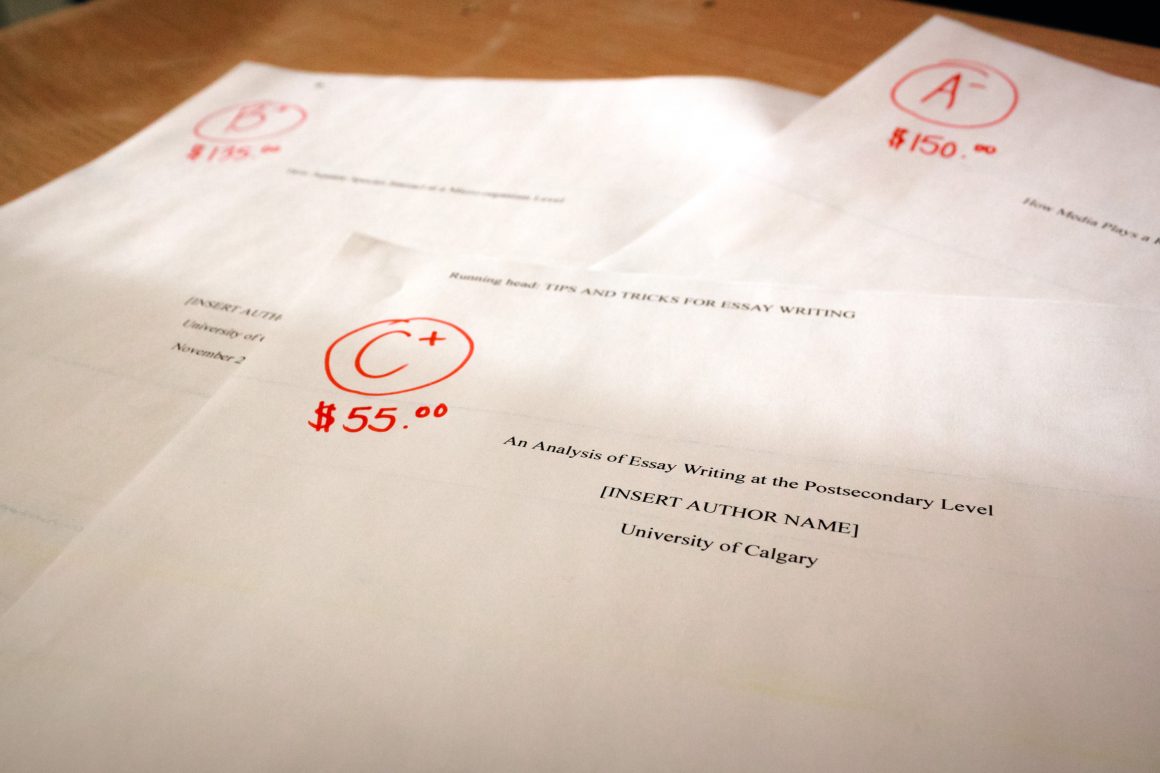
University of Calgary looks to combat emerging academic black markets
By Justin Schellenberg, November 8 2017 —
University of Calgary teachers and administrators are starting to notice the emergence of an academic black market through contract cheating on campus. They’re now looking to tackle the issue.
International Center for Academic Integrity (ICAI) defines contract cheating as “a form of academic dishonesty where students get academic work completed on their behalf, which they can submit for academic credit as if they had created it themselves.”
Advertisements and flyers offering these services targeting U of C students have been discovered on Kijiji and in classrooms on campus.
“It’s getting on our radar,” said acting associate dean of teaching and learning Sarah Eaton. “Until now, it’s been informal. People have been scratching their heads trying to figure out what to do and we haven’t had any big conversations about it.”
Participating in academic black markets constitutes academic misconduct, which can result in consequences ranging from a failing grade to expulsion from the university.
Eaton said a lack of local research on the issue makes it difficult to assess the severity of the problem.
“Much of the information we have is from research conducted in other countries,” Eaton said. “There hasn’t been a lot of research done on this in a Canadian context in the last 10 years. We don’t know how prevalent it is here.”
Vice-provost student experience Susan Barker stressed her belief that the number of U of C students using these services is very small.
“Academic integrity is a really important cornerstone of the institution,” Barker said. ”It’s difficult to know exactly how many students might be doing this. I would say the vast majority of students are not doing this. I think that people get that it’s not appropriate. It’s against the regulations.”
Barker added that cheating comes down to a small number of students who “don’t play by the rules.”
“We’ve got a handful of kids who might think this is an easy way to get a good grade and it’s worth taking the risk,” Barker said.
While Eaton agrees the current usage of these services is likely low, she believes that the use of contract cheating is spreading and that more effort will be needed to combat the issue.
“I think it’s growing,” Eaton said. “I think it’s being normalized in ways that are very unsettling.”
One of the ways that the U of C tried to tackle the issue was by taking part in the annual International Day of Action Against Contract Cheating on Oct. 18, an initiative in its second year coordinated by the ICAI to help institutions bring forward the issue of contract cheating. Toolkits designed to educate on prevention and detection of contract cheating are also being distributed to faculty members across campus.
Eaton believes the solution to the issue lies in bringing students into the conversation and getting their input.
“We can talk about it at the level of instructors, but this is ultimately a conversation about students learning,” Eaton said. “If we’re not doing a good enough job of supporting learning, then we need to look at what we can do better.”
